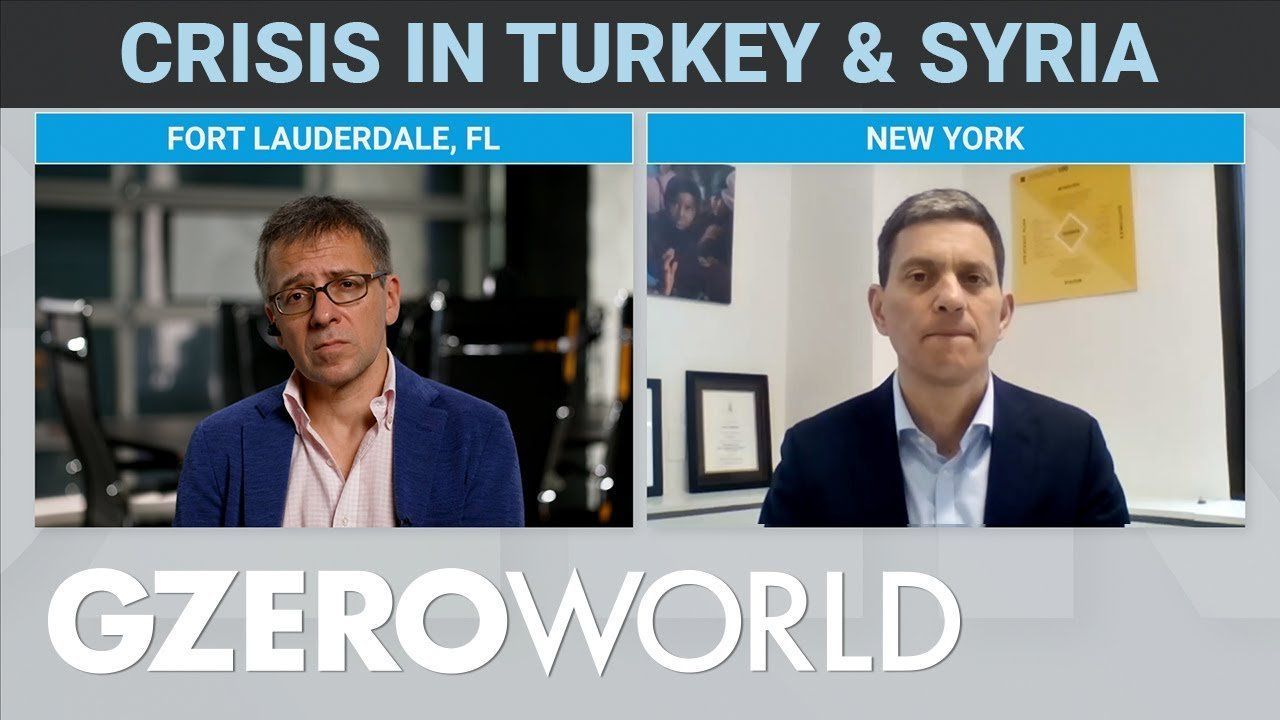GZERO World with Ian Bremmer
Challenge of survival/Problem of governance: Aid for Turkey & Syria

Challenge of survival/Problem of governance: Aid for Turkey & Syria | GZERO World with Ian Bremmer

The recent earthquakes in Turkey and Syria have highlighted the challenges of providing aid in a region plagued by conflict and political instability. In conversation with Ian Bremmer on GZERO World, the International Rescue Committee's President and CEO, David Miliband, explains that aid delivery remains a challenge, particularly in the northwest of Syria controlled by armed opposition groups.
The earthquake has compounded the ongoing crises in Syria, as lack of adequate medical care, cholera outbreaks, freezing temperatures, and continued border skirmishes pose major risks to the population. Miliband notes, “If you live there, it's very hard for people to keep any hope at all.”
The critical task now is to scale up the delivery of aid to those still desperately in need in Turkey and Syria.
The disaster is quickly becoming a political issue in Turkey, as people accuse the government of lax building standards and corrupt permit systems. Although Miliband is no expert in structural engineering, he brings up Turkey's recovery after a devasting earthquake in 1999, which was plagued with accusations of corruption and led to the outster of the prime minister. Miliband predicts that the earthquake response will influence Turkey's upcoming election, adding to the political heat.
The migrant crisis is also a complex and pressing issue, with Miliband emphasizing the need to “balance fairness with humanity and fulfill legal as well as moral obligations for people who have been driven from their homes.”
15: The number of migrants who died after their boat accidentally collided with a Greek Coast Guard vessel in the Aegean Sea on Tuesday. Two dozen people were rescued.
Walmart is investing $350 billion in US manufacturing. Over two-thirds of the products Walmart buys are made, grown, or assembled in America, like healthy dried fruit from The Ugly Co. The sustainable fruit is sourced directly from fourth-generation farmers in Farmersville, California, and delivered to your neighborhood Walmart shelves. Discover how Walmart's investment is supporting communities and fueling jobs across the nation.
Democratic Alliance leader John Steenhuisen announced Wednesday that he will not run for a third term as leader of the liberal, pro-business party, after months of internal pressure over a host of controversies – including allegations, since cleared, that he used the party credit card for Uber Eats.